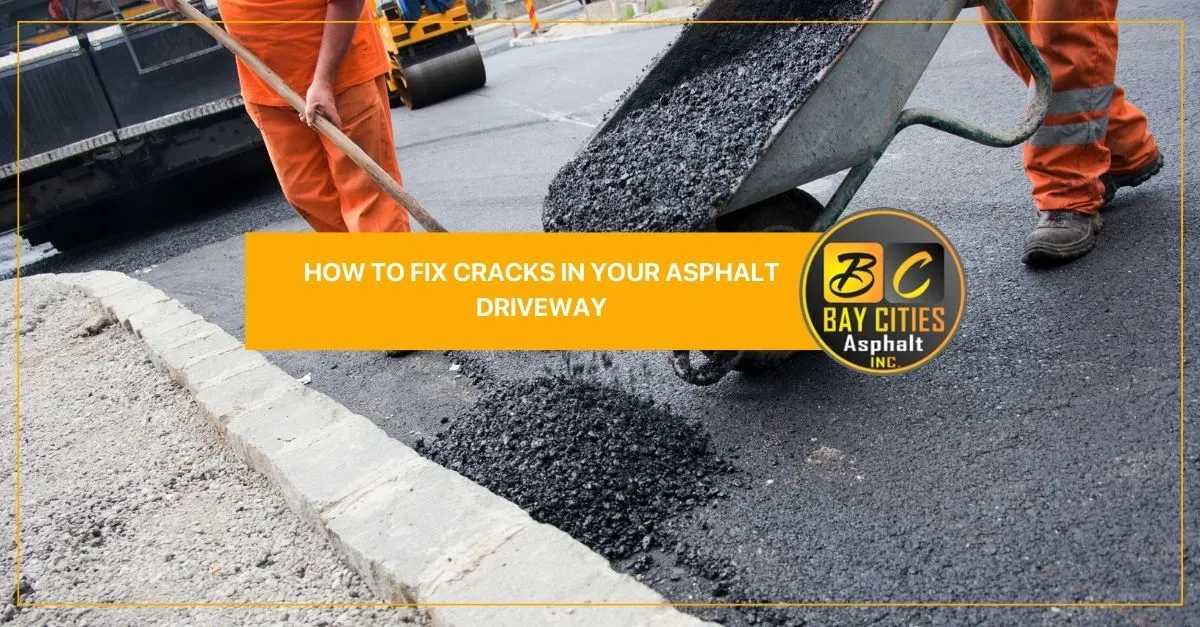
If you’ve noticed cracks in your asphalt driveway, don’t panic! It’s a natural part of the aging process and not the end of the world. It’s a normal part of it getting older, and it certainly won’t be the end of the world if it happens to you.
While it can be tempting to overlook them, those cracks will only become more prominent with time, and it isn’t lovely to look at even little ones. Cracks in asphalt driveways often appear for one of three primary reasons: the pavement has aged, it has been subjected to severe environmental conditions, or it has been damaged by lawnmowers or other types of heavy gear.
If you want to know how to fix cracks in your asphalt driveway, you’ll need to pay attention to where the cracks are and what caused them to appear in the first place. This will allow you to figure out what kind of repair is required. The following is a list of suggestions for repairing cracks in your asphalt driveway:
Inspect the Cracks Closely To See If They Go All The Way Down To the Ground
Driveways paved with asphalt are constructed from a combination of sand, gravel, and asphalt, in addition to several additives that impart various qualities. You might discover that cracks have appeared for one reason or another every once in a while.
Before you take action on the appearance of your driveway, it is essential to get an accurate idea of what caused the cracks in the first place. This will help you determine the best course of action to take. To accomplish this, you will need to carefully inspect the cracks to determine whether or not they extend to the ground below.
If they don’t, the cracks are probably caused by surface stress, which can be repaired using less invasive methods than digging the entire driveway up and replacing the asphalt.
Use a Sealant or Filler Material to Fill in the Smaller Cracks
It’s annoying when your asphalt driveway develops cracks, but there are solutions to fix them. Before assuming the crack is a hole, check if it isn’t an expansion joint in your driveway. If there is a crack, however, you should first fix any minor cracks with a sealer or filler solution. As a result, water shouldn’t be able to seep into the crevices and widen them.
Also, if you want to harden the asphalt again and stop additional fractures, you might use a sealant/filler solution that contains asphalt. If you want to use anything other than asphalt, be sure it can work with asphalt. More minor cracks should be filled up first, but if you see wider cracks across the whole driveway, you may need to replace the asphalt to avoid additional damage.
Try Using an Asphalt Cold Patching Product to Repair the Cracks
Investigating the origin of the fractures is the first order of business. Asphalt pavement bending or ripping, water or air penetration, and ordinary wear and tear are typical reasons. Close examination is necessary to discover the cause of the cracks. To solve them, you must first understand what is causing them. In the case of asphalt, cold patching is the method of choice for repairs to cracks and holes less than three inches wide.
For this method, asphalt is poured directly into the crack and then compacted with a hand roller. You should consider alternative repair methods if the cracks are more comprehensive than three inches. Applying an asphalt sealer ahead of time is a good idea if your driveway has cracks from water or air infiltration. After you have sealed the area, you can start patching with an asphalt cold patching product. Spread it out with a garden spreader and then smooth it out with a hand roller for an easy application.

Apply Heat with a Propane Torch to Make the Asphalt Driveway More Pliable and Easier to Work With
Roads and driveways are paved with asphalt, a combination of sand, gravel, stones, and bitumen. The bitumen binds everything together and gives asphalt its superior durability compared to other paving options.
In addition, asphalt’s inherent resilience to cracking significantly contributes to the material’s overall durability. But the tight bonding of these materials has unintended consequences; for example, when the bitumen dries out or softens due to severe temperatures, asphalt has difficulty moving with the ground underneath it. Your asphalt driveway might develop cracks as a consequence.
You may see cracks in your driveway if you reside in a location with large seasonal temperature swings. However, if you find cracks in your driveway where there were none previously, the problem may be due to flaws in the way it was constructed or maintained.
Bay Cities Asphalt offers professional and affordable asphalt services for residential and commercial properties, including driveways and parking lots. Our specialists will listen to your concerns and help you choose an appropriate solution that fits within your budget. Call us at 800-343-3661 or visit our website today if you want more information.
